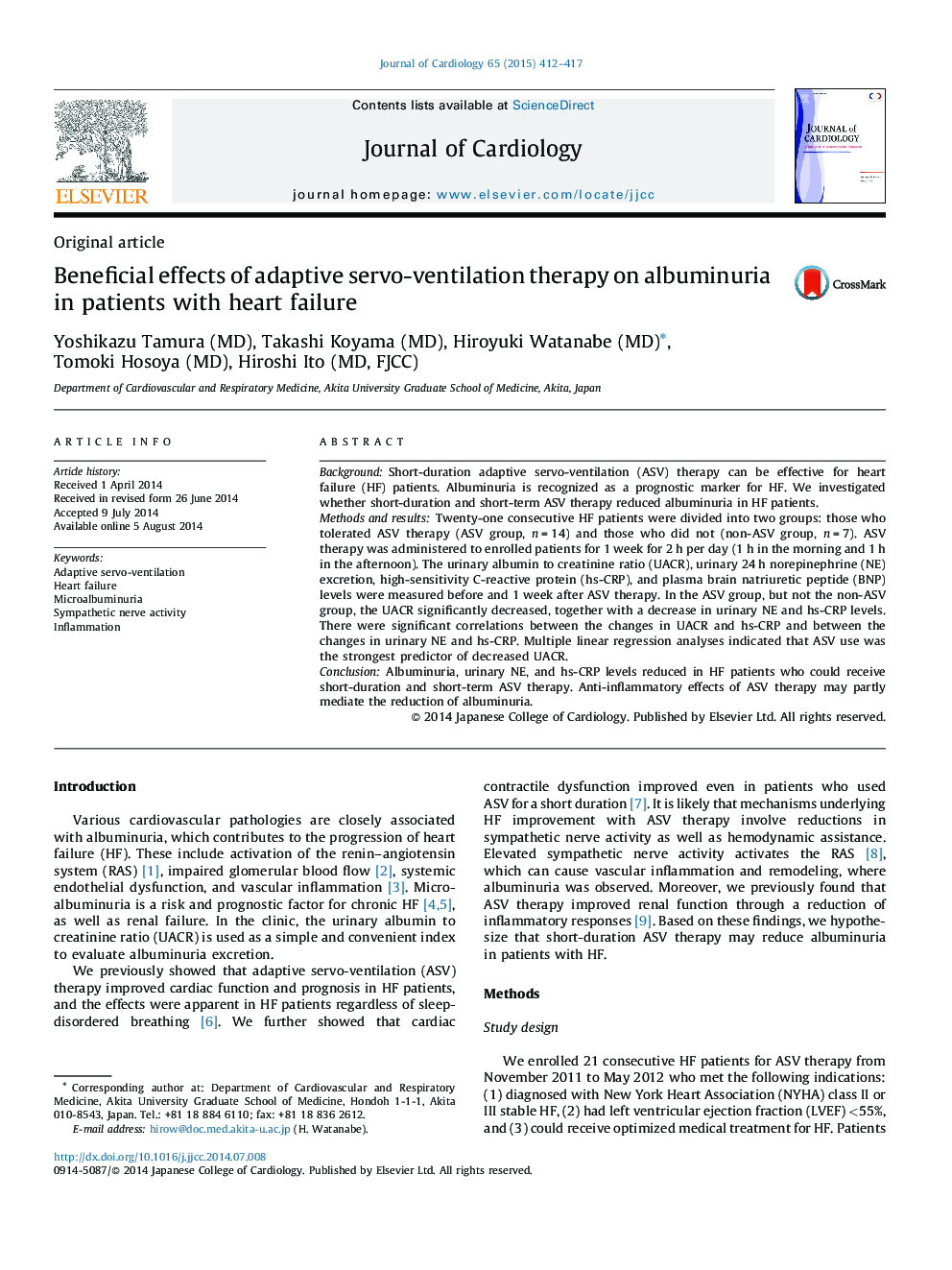| Article ID | Journal | Published Year | Pages | File Type |
|---|---|---|---|---|
| 2962977 | Journal of Cardiology | 2015 | 6 Pages |
BackgroundShort-duration adaptive servo-ventilation (ASV) therapy can be effective for heart failure (HF) patients. Albuminuria is recognized as a prognostic marker for HF. We investigated whether short-duration and short-term ASV therapy reduced albuminuria in HF patients.Methods and resultsTwenty-one consecutive HF patients were divided into two groups: those who tolerated ASV therapy (ASV group, n = 14) and those who did not (non-ASV group, n = 7). ASV therapy was administered to enrolled patients for 1 week for 2 h per day (1 h in the morning and 1 h in the afternoon). The urinary albumin to creatinine ratio (UACR), urinary 24 h norepinephrine (NE) excretion, high-sensitivity C-reactive protein (hs-CRP), and plasma brain natriuretic peptide (BNP) levels were measured before and 1 week after ASV therapy. In the ASV group, but not the non-ASV group, the UACR significantly decreased, together with a decrease in urinary NE and hs-CRP levels. There were significant correlations between the changes in UACR and hs-CRP and between the changes in urinary NE and hs-CRP. Multiple linear regression analyses indicated that ASV use was the strongest predictor of decreased UACR.ConclusionAlbuminuria, urinary NE, and hs-CRP levels reduced in HF patients who could receive short-duration and short-term ASV therapy. Anti-inflammatory effects of ASV therapy may partly mediate the reduction of albuminuria.
